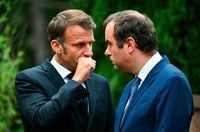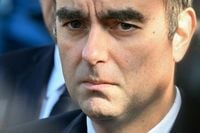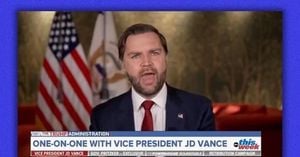French President Emmanuel Macron has unveiled a new government in a bid to steer the country out of its deepest political crisis in years, as Prime Minister Sebastien Lecornu faces the daunting task of assembling a workable cabinet and producing a budget under the shadow of mounting debt, investor anxiety, and a fractured parliament. The announcement, made on October 12, 2025, comes after marathon talks and only days before the constitutionally mandated deadline to present next year’s budget to parliament.
Macron’s decision to reinstate Lecornu as prime minister late on Friday, October 10, capped off a turbulent week in French politics. Lecornu, a 39-year-old centrist and close Macron ally, had resigned just four days earlier when his first government collapsed amid fierce opposition from key political allies. Yet, after days of political wrangling and an urgent call from the president, Lecornu agreed to return, tasked with forming a cabinet that could break the parliamentary deadlock and restore investor confidence in France’s ability to govern itself.
The new cabinet, published by the president’s office on Sunday, is a blend of old hands and fresh faces, drawn from Macron’s centrist camp, allied conservatives, and even some from outside traditional party lines. Jean-Noel Barrot remains as foreign minister, a key post as France navigates international crises and, notably, as he prepares to accompany Macron to Egypt for a Gaza ceasefire ceremony on October 13—a trip that could delay the all-important budget presentation.
Catherine Vautrin, the outgoing labour minister, steps into the critical defence portfolio. Her role will be especially significant as she oversees French military support for Ukraine and addresses growing security threats posed by Russia to Europe, according to Breaking News. Roland Lescure, a Macron loyalist, has been tapped as economy minister, charged with tackling France’s ballooning debt and rising poverty rates—no small feat as the country faces pressure from the European Union to rein in its deficit.
The security brief will now be handled by Paris police chief Laurent Nunez, who replaces Bruno Retailleau of the right-wing Republicans (LR) party as interior minister. Nunez, who oversaw security for the 2024 Olympics, brings a steady hand to national security at a time of heightened tensions across the continent. Meanwhile, Monique Barbut, former France director of the World Wide Fund for Nature (WWF), will lead the ministry of environmental transition, signaling a renewed focus on environmental policy amid global climate concerns.
Some familiar faces remain. Gerald Darmanin holds onto his position as justice minister, while Rachida Dati, despite facing an upcoming corruption trial, retains her post as culture minister. The continuity in these posts, observers say, is meant to project stability in the midst of political upheaval. In a post on X, Lecornu wrote, “A mission-based government has been appointed to draw up a budget for France before the end of the year. I would like to thank the women and men who have freely committed themselves to this government, putting aside personal and partisan interests. Only one thing matters: the interests of the country.”
The new government’s mandate is clear: deliver a budget for 2026 and restore public finances. But the path ahead is fraught with obstacles. Macron’s government lacks a majority in the National Assembly, which remains deeply divided among far-right, centrist, and left-wing factions. The right-wing Republicans (LR), a crucial political ally, announced on October 11 that they would not participate in the new government, opting instead to cooperate on a “bill-by-bill” basis. This move complicates Lecornu’s efforts to build a stable governing coalition and leaves the cabinet vulnerable to a no-confidence vote.
Opposition parties have wasted no time in challenging the government’s legitimacy. Some legislators have called for new elections or even Macron’s resignation, citing the administration’s inability to secure a stable majority and the ongoing political paralysis. The Socialists, in particular, have threatened to topple the government unless it backs away from the controversial 2023 pension reform, which pushed the retirement age from 62 to 64. The reform, a hallmark of Macron’s second term, was forced through parliament without a vote and sparked mass protests across the country.
Lecornu, aware of the high stakes, has signaled a willingness to negotiate. “All debates are possible” over the pension reforms, he said on Saturday, adding that his “only ambition is to get out of this situation that is painful for everyone.” Yet, he remains realistic about his own political future, acknowledging that there were not “a lot of candidates” for the prime minister’s job and that his tenure may be short-lived given the depth of the country’s political divides, according to Breaking News.
France’s political deadlock has far-reaching consequences. The country faces pressure from the EU to rein in its deficit and debt, and the fight over cost-cutting measures has already toppled two of Lecornu’s predecessors. If the government fails to secure parliamentary support for the budget, France would need emergency stopgap legislation to authorize spending from January 1 until a full budget is adopted—a prospect that worries domestic businesses, global investors, and EU partners alike.
The sense of urgency is palpable. Lecornu has pledged to do “everything possible” to present a budget by the end of 2025, emphasizing that restoring public finances is “a priority” for the future. But with Macron scheduled to travel to Egypt on October 13, the timeline is tight, and any delay in presenting the draft budget could further erode confidence in the government’s ability to function.
The roots of the current crisis can be traced back to Macron’s surprise decision last year to dissolve the National Assembly in hopes of consolidating his power. Instead, the move backfired, producing a hung parliament and handing more seats to the far right, setting the stage for months of political paralysis and public unrest. Now, as Macron’s term winds toward its 2027 endpoint, he faces the greatest domestic challenge since the start of his presidency in 2017.
Within this turbulent context, the new government’s ability to deliver a credible budget and restore a sense of stability will be closely watched—not just in Paris, but across Europe and beyond. As Lecornu and his cabinet get to work, the stakes for France’s political future could hardly be higher.
For now, all eyes are on the National Assembly, where the fate of Macron’s government—and perhaps the direction of France itself—will be decided in the coming weeks.






